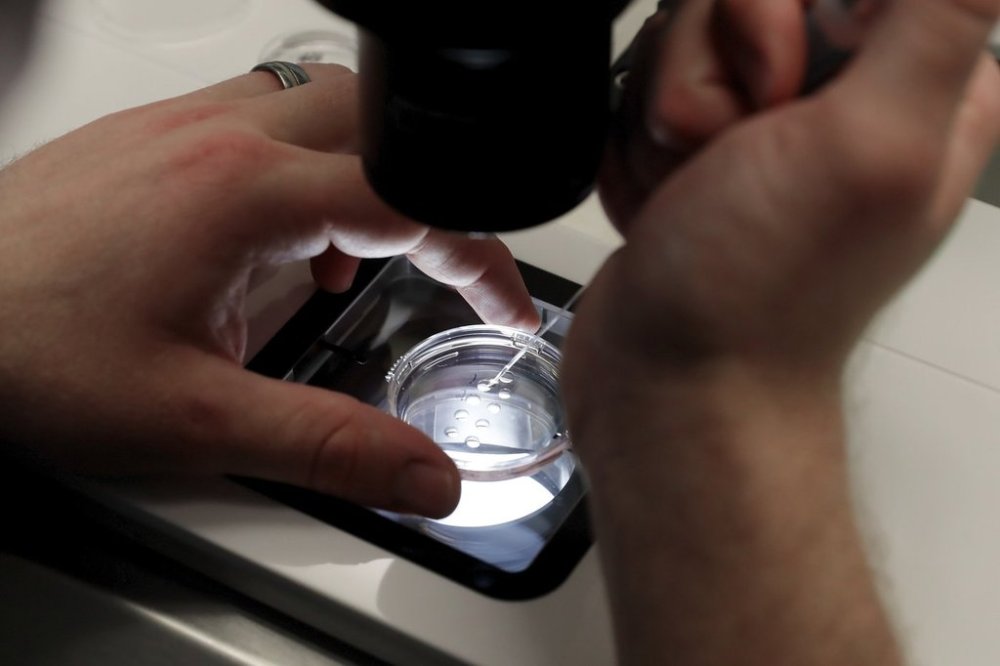Georgia bill to codify IVF heads to governor after getting overwhelming support in both chambers
Advertisement
Read this article for free:
or
Already have an account? Log in here »
To continue reading, please subscribe:
Monthly Digital Subscription
$0 for the first 4 weeks*
- Enjoy unlimited reading on winnipegfreepress.com
- Read the E-Edition, our digital replica newspaper
- Access News Break, our award-winning app
- Play interactive puzzles
*No charge for 4 weeks then price increases to the regular rate of $19.95 plus GST every four weeks. Offer available to new and qualified returning subscribers only. Cancel any time.
Monthly Digital Subscription
$4.99/week*
- Enjoy unlimited reading on winnipegfreepress.com
- Read the E-Edition, our digital replica newspaper
- Access News Break, our award-winning app
- Play interactive puzzles
*Billed as $19.95 plus GST every four weeks. Cancel any time.
To continue reading, please subscribe:
Add Free Press access to your Brandon Sun subscription for only an additional
$1 for the first 4 weeks*
*Your next subscription payment will increase by $1.00 and you will be charged $16.99 plus GST for four weeks. After four weeks, your payment will increase to $23.99 plus GST every four weeks.
Read unlimited articles for free today:
or
Already have an account? Log in here »
Hey there, time traveller!
This article was published 27/03/2025 (283 days ago), so information in it may no longer be current.
ATLANTA (AP) — A Georgia bill to codify the right to in vitro fertilization got overwhelming approval from the state Senate Thursday, setting it up to move to Gov. Brian Kemp’s desk for his signature.
The House approved it last month, and the chamber will likely approve the final version Friday.
Republican Rep. Lehman Franklin drew bipartisan support for his bill, which he introduced in part over concerns about access to the treatment after the Alabama Supreme Court ruled last year that frozen embryos can be considered children under state law. After multiple rounds of IVF and a plan to adopt fell through, Franklin and his wife Lorie were finally able to conceive using the treatment. They’re expecting a baby girl this summer.

“We wanted to find the language to safeguard it so we didn’t have any kind of experience that other states might have had in the past,” Franklin said in an interview. “We want to get ahead of the game and make sure that we’re safe.”
Lorie Franklin joined her husband in the House and Senate when each chamber voted on the bill.
Some conservatives are skeptical of IVF because some embryos are discarded in the process. Franklin said floating concerns are “satellite issues that are worthy of debate,” that could be addressed separately.
Legal experts say Georgia’s current law does not pose a significant threat to IVF the way Alabama’s constitution did.
A handful of states have “personhood” laws, which give rights to fertilized eggs, embryos or fetuses. Georgia’s personhood law defines a fetus as a person and is one of the broadest, giving rights such as tax breaks and child support to unborn children.
But the Alabama ruling relied on the wording of the state’s wrongful death statute and language added to the Alabama Constitution in 2018 protecting the “rights of the unborn children.” After the ruling, Alabama’s governor signed legislation protecting IVF providers from legal liability.
Still, the bill’s passage comes a day after a hearing on House Bill 441 that would make most abortions a homicide and recognize fetuses as people from the point of fertilization. House Republican sponsors of that bill voted in favor of Franklin’s bill protecting IVF access. But doctors told the committee the bill would bar access to IVF.
“Ultimately, I don’t think they’re going to be able to go all the way with personhood and simultaneously protect IVF the way they want to,” said Duke University law professor Jolynn Dellinger in an interview last month, referring to those who want to push the laws defining personhood further.
For now, though, IVF access will remain protected in Georgia. President Donald Trump has also affirmed his support for IVF access, including through an executive order aiming to reduce its cost.
Republican House Speaker Jon Burns made the bill to protect IVF a priority this session.
___
Kramon is a corps member for The Associated Press/Report for America Statehouse News Initiative. Report for America is a nonprofit national service program that places journalists in local newsrooms to report on undercovered issues. Follow Kramon on X: @charlottekramon.

